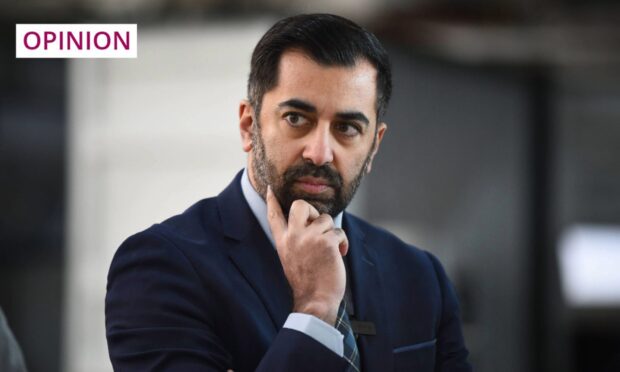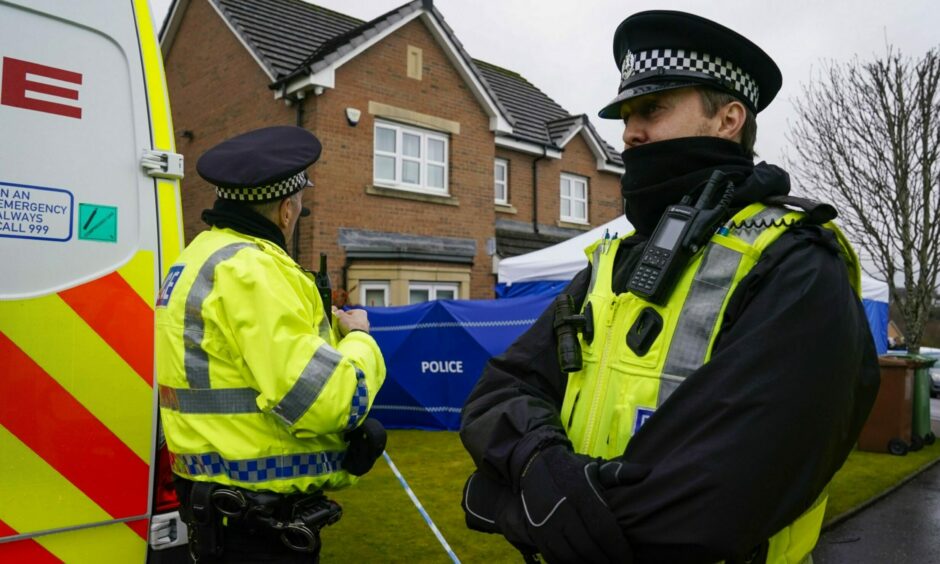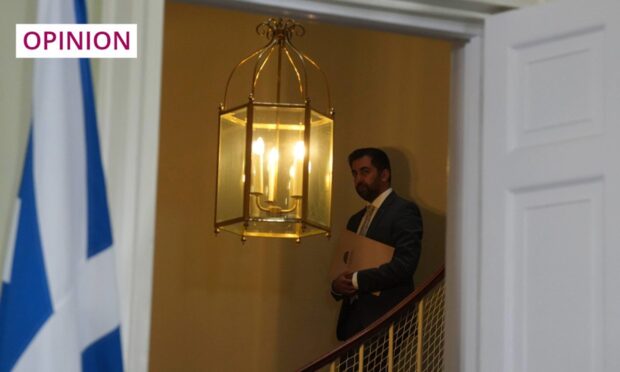Are the SNP heading for a tonking in the general election, and then in the Holyrood election that follows in 2026?
I’ve struggled to make my mind up, and the polls are wayward on the matter, but I’m increasingly leaning towards the view that both will be very bad nights for the Nationalists.
It strikes me that this is a party and government that is now almost entirely at the mercy of events – unable to dictate its terms of engagement with either the media or the electorate, lacking a compelling narrative about its purpose or the direction in which it wants to take the country, and without the requisite intellectual wizardry required to turn these things around.
From my conversations, it is now hard to find SNP politicians who think Humza Yousaf is an effective leader. Even some of those who supported him for the post, who understand the difficult conditions he inherited, and who still like him a great deal (he’s a nice man, there’s much to like), have been disappointed by his performance.
There is a thing that standout leaders have. They might be quiet or loud, they might be overtly charismatic or more self-contained, but there is always an inner steel and focus that communicates itself to the voters. Winston Churchill and Clement Attlee couldn’t have been more different personalities, for example, but both are revered for what they achieved through their distinct styles of leadership. You know it when you see it.
Independence well out of reach
More than a year into his first ministership, it still doesn’t feel like Yousaf leads the country, or is master of his party. I still struggle to identify what his top priorities are, beyond mulishly shuffling along in pursuit of an independence that is currently well out of reach.
He had the opportunity, on taking over, to refocus the administration on the areas that were obviously bothering mainstream voters most – a cost-of living crisis that has hit not just the less well-off but considerably reduced the living circumstances of the middle-classes; an NHS that is obviously in turmoil and that will not be fixed without significant government thought and intervention; a schools system that has been allowed to stagnate for too long and is now clearly in decline.
I’m no Peter Mandelson, but even I could have advised Yousaf to unhook himself from the exhausted Sturgeon agenda and swing the government’s attention to these issues, showing people that he understood and shared their concerns, and would try to be on their side. Instead, the early months were dominated by an often baffling debate about strategy on independence and referendums and what constituted a mandate.
A series of arrests around the SNP funding scandal created such terrible weather that the Met Office might have given it a storm name (Storm Nicola?). The gender wars rolled on. The ferry production line continued not to roll at all. Taxes went up on the hard-pressed middle. And so on.
There was always a suspicion among his detractors, and even among a fair few of his supporters, that Yousaf wanted to be
First Minister simply because he wanted to be First Minister – that there wasn’t much more to him than that. Sadly, it’s now hard to avoid that conclusion. Where has been the reinvention of government and policy after 16 years of the SNP in office? What drives him that would make a difference to the lives of the broad mass of people? What is he for?
You can only blame what you inherit for so long
In the end, you can only blame events and your inheritance for so long. After 13 months in the big seat, the point of you should be evident both to those who agree with you and those who disagree. With a general election looming, your agenda should have a sharp edge – This is what we’re going to do on the issues that affect and concern you most, this is why you should vote for us.
Instead, recent weeks have been dominated by a row over new hate crime legislation which seems to appeal to few and offend many, and which re-emphasises the half-baked, busybody nature of modern SNP thought. Yousaf has said an awful lot about Gaza, and every week seems to bring another civil-service-authored paper talking up how brilliant Scotland would be if only it were free of the UK, an exercise of diminishing returns.
Only last week, Yousaf suggested an independent Scotland might broker peace in the Middle East. A senior SNP politician messaged me dryly that “the Israelis might conclude that he’s already picked a side”. To my response, that the FM’s largely meaningless grandstanding could now be actively hacking off the large parts of the electorate which want him to knuckle down on fixing the schools and hospitals, he said “there is a deep sense of that among many of us.”
But there is still nothing substantial on schools or hospitals or the economy. There is still no sign of grip, or a governing agenda with which ordinary Scots can engage. The SNP looks to be heading into the election campaign intent on banging on about independence and whinging about the iniquities of Westminster.
The “time for a change” argument will decide the result and put Keir Starmer into Number 10. It’s also what’s going to do for the Nats. They look wholly incapable, under Humza Yousaf, of resisting that outcome.
Chris Deerin is a leading journalist and commentator who heads independent, non-party think tank, Reform Scotland












Conversation